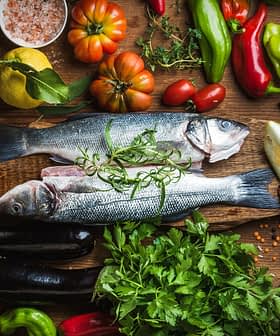Mediterranean Diet withextra virgin olive oil Outperforms Low-Fat Diet for Weight Loss
New research shows a high-fat Mediterranean diet with extra virgin olive oil increases weight loss in people with chronic health conditions.
Despite the common belief that fat is the enemy in the human diet, recent research has shown that a high-fat Mediterranean diet rich in extra virgin olive oil can actually outperform a low-fat diet for weight loss in individuals with chronic health conditions. A study published in The Lancet analyzed 7,447 participants and found that increasing fat intake through healthy vegetable fats did not lead to weight gain or visceral fat accumulation, highlighting the importance of a balanced, nutrient-dense diet over simply focusing on calorie restriction.
Fat has long been considered the evil enemy in the human diet. Largely because it has been perceived as a causative factor in the growing obesity epidemic. Being that it has a higher nutrient density compared to proteins and carbohydrates — one gram fat equating to nine calories, protein and carbohydrates only four calories per gram — it’s an easy assumption to make.
In recent years, however, researchers have become aware that a calorie is not a calorie. Meaning, calories from junk food are not going to have the same effect on human biochemistry as calories from fruit, vegetables and other nutritious foods, including fats. Despite nutritional knowledge increasing, the mainstream Western dietary advice is still entrenched with the idea that a low-fat diet is the recommended choice for the majority of individuals, particularly when it comes to weight loss.
See Also:Olive Oil Health Benefits
Yet many new studies are showing that it could quite be the opposite, especially when healthy vegetable fats — monounsaturated and polyunsaturated — make up a large proportion of fat consumption. The Mediterranean diet (MedDiet) has long been considered one of the healthiest dietary patterns, with ample research supporting its consumption and the inclusion of extra virgin olive oil for a wide range of health benefits. New research has now shown that a high-fat MedDiet rich inextra virgin olive oil outperforms a low-fat diet for weight loss in a population suffering chronic health conditions.
An analysis recently published in The Lancet of secondary outcomes from the PREDIMED randomized controlled trial looked at 7,447 participants, both men and women ranging from 55 – 80 years old, 90 percent of which were either overweight or obese and had either type 2 diabetes or multiple cardiovascular risk factors. The study assessed changes in body weight and waist circumference over the 5‑year trial period and compared three interventions, a MedDiet with EVOO, a MedDiet supplemented with nuts, and a control (low-fat) diet. There were no restrictions or recommendations advised for daily energy/ calorie consumption or physical activity.
Participants in the two MedDiet groups were directed by dietitians to increase their fat intake by 40 percent, while the control (low-fat) group was directed to consume no more than 30 percent of their daily energy requirements in fat. Though energy restriction was not required, it decreased in all groups with the largest decrease in the control (low fat) group. All groups had an average of 40 percent fat intake at baseline. Fat intake reduced by 2.6 percent in the control (low-fat) group, and increased by 1.8 percent, from monounsaturated and polyunsaturated fats, in both MedDiet groups
The results showed the MedDiet+EVOO group lost 0.88 kg compared to 0.60 kg in the control group and 0.40 kg in the MedDiet+nuts group. Waist circumference increased slightly for all three groups but this was less for both MedDiet groups (0.85 cm in the MedDiet+EVOO and 0.37 cm in the MedDiet+Nuts group), and a greater increase of 1.2 cm in the control (low-fat) group.
These results of the analysis highlighted the fact that a non-calorie restricted high-fat diet does not increase weight gain or visceral fat (belly fat) accumulation. They further confirm that at a practical level, that recommending a higher intake of dietary fat within a healthy dietary pattern such as a MedDiet does not lead to further health implications and can often be an easier dietary pattern for individuals to sustain than a calorie restricted low-fat diet.









